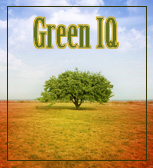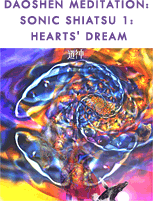Ask Ronit
 I Like Your Ponytail, A Story About Commitment
I Like Your Ponytail, A Story About Commitment
“I like your ponytail.” I said in a playful manner. “Ponytail?” he repeated in a thick French accent. There and then began the most extraordinary odyssey of my life.…
Avoid 90% of the Pesticides in Food, by Avoiding 12 Foods
Why should you care about pesticides in your food?For starters there may be as many as twenty pesticides on a single piece of fruit you eat.…
Dear Mrs. Black,It was January 1967 when this 11 year-old, frightened, little Israeli girl walked into your classroom for the first time. I had only arrived in the country two weeks before.…
With sex all around us, oozing out of our televisions, theaters, magazines, fashion, on the streets, one would think we are the most sexually informed, open and comfortable nation on the planet.”…
I’m sure by now you all have noticed the ongoing meltdown in the mortgage industry. The cause of this whole mess is a little bit complicated, rooted in both the structure of the mortgage industry, and human nature. I’ll try to explain both factors here in layman’s terms.…
Breaking old habits; Creating new Ones
We are mostly habitual beings. Webster defines habit as an acquired mode of behavior that has become nearly or completely involuntary.…
Navigation
A Return To Old Wisdoms
By reli4nt
Seek wisdom over knowledge. Knowledge is of the past, wisdom is of the future.
Lumbee
As our cultural trends yearn towards the ideals of "green," "sustainability" and "eco-consciousness," be it out of a sense of necessity or a sense of responsibility. It amuses me the see how much our goals seem to strive towards old wisdoms of the indigenous cultures. I believe, if nothing else, a basic re-introduction to the culture and beliefs of the Native Americans would provide strength to the journey and light to the path we take towards these trendy goals, hopefully helping them to endure.
Let me start by saying that referring to a Native American (American Indian, Amerindian, etc. ) culture or philosophy is vague at best and borders on inaccurate. Native Americans are an exceedingly diverse aggregate of peoples and lumping them together is like referring to all Africans, all Europeans, or all Asians as one culture. Still, there is a certain perspective that I call wisdom, thousands of years old, which pervades the groups as a whole and to which I am referring.
Everything the power does, it does in a circle.
Lakota
All native beliefs were based on an understanding that man is part of nature and that his health and the health of all things depend on balance and harmony. Like the body, the world depends on relationships between many different parts. Not only the planet and animals work this way, but the universe, life and nature itself are all examples of this law. As an example today, if you treat your land with heavy chemicals your health will suffer from the pollution; when we poison the sea with industrial waste, the sea poisons us with the fish we eat.
There is an interdependence in all things that begins with the parts of the human body, and extend through the family system to our societies and our planet as a whole. One part can never be separated from the whole no matter how much control, influence over or distance from the others it may seem to have. By keeping close to heart and in the forefront of our minds the consequences of all things, it is easy to accept and understand that our responsibilities towards others means taking care of ourselves, and to disregard our own well-being means to burden others. It becomes easy to understand how taking care of others is an important part of taking care of ourselves. It becomes difficult to be selfish or selfless when all actions are really both.
Man has responsibility, not power.
Tuscarora
Our world thrives when we understand and respect the relationships that bind all things. It is our ability to change the course of rivers, to level landscapes and alter the life in oceans thousands of miles away that shows us, not our power, but our responsibility to nurture these interrelationships. Anything we have power over, we can easily nuture or destroy; and when what we do to it we do also to ourselves we see power becomes responsibility. Not a responsibility as in an debt or obligation stemming from our supremacy, but responsibility in the same sense that we are each responsibile for our own actions and our own futures. For us to thrive we need to learn to thrive as the world about us thrives, not in spite of it.
Before eating, always take time to thank the food.
Arapaho
The old wisdoms always taught gratitude. While we may think that we are masters of the animals we raise for food, we are arguably indebted to them. They nurture us and clothe us no differently than a mother would. The world offers everything that we need to survive and to thrive. It is only when we express and live out our gratitude from this understanding that we learn to take care of those things that take care of us. In doing so we ensure that these things will continue to be there for us -- just as we will continue to be there for them.
Perhaps more than a change in habits, we need a change in perspective. From there the green or sustainable living that we are beginning to realize our lives have always depended upon, will become natural, effortless, and causes for happiness rather than sources of inconvenience.
If our culture is to survive we may need to return to old wisdoms, shift our locus of pride and recognize that mastery of our planet is in learning to thrive as it thrives. We must recognize that change must first take root in our own backyards; and we must learn to teach these values to our children. It is not enough to cross or fingers or to wait for someone to hurry up and do something.

 My Hero
My Hero We Are Sexual Beings
We Are Sexual Beings The Banking Implosion
The Banking Implosion















Post new comment